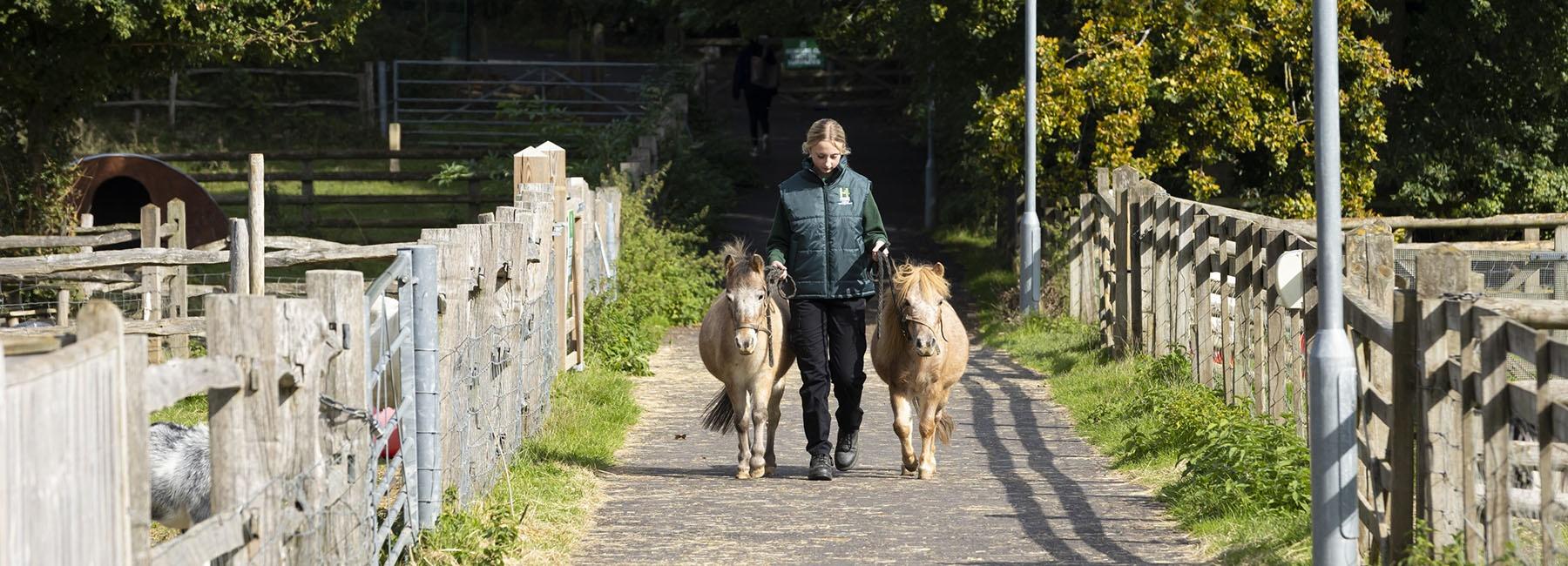This is a University of Greenwich programme.
The programme will be of interest to students who enjoy the biological sciences and have an interest in pursuing a career in the animal management industry. There is a broad diversity in the career opportunities available that relate to animal behaviour and welfare and these can often involve roles that offer both practical and theoretical elements. The varied styles of teaching delivery within the programme are therefore ideal for creating graduates that can make the most of these career opportunities. Students will develop a range of practical biological science and practical animal skills in the first year whilst studying specific animal behaviour and welfare course materials. This establishment of fundamental skills is then developed further as students progress into year two and if they wish to proceed to a full Honours degree, into year three, where subjects taught cover a diverse range of relevant areas such as Behavioural Ecology and Psychopharmacology and Neuroscience. Assessments include coursework, individual and group oral and PowerPoint presentations, mixed media formats, research reports, case studies and assignments, and closed and open book examination. Modular Structure Year 1 Principles of Animal Behaviour (30)
- Concepts in Animal Welfare (15)
- Research Skills (15)
- Introduction to Animal Training (15)
- Concepts in Animal Science (15)
- Work Based Learning 1 (30) Year 2 Breeding Management and Genetics (15)
- Data Analysis (15)
- Applied Animal Welfare (15)
- Animal Cognition and Learning (15)
- Problem Behaviour Management and Animal Training (15)
- Work Based Learning 2 (30) A choice of either:
- Exotic Collection Management (15) OR
- Advanced Animal Husbandry, Health and Nutrition (15)
Course options
Code
T3H144PLevel
Level 4Campus
HadlowDuration
2 YearsStarting
15/09/2025Ending
18/06/2027-
What qualification will I gain?
-
Entry Requirements
64 UCAS points are made up from A Levels, preferably one in a science-based subject, or a relevant level 3 vocational qualification. All applicants should have GCSE Grade C or above in English, maths and science and have spent two years studying at Level 3. Applications from mature students, without the standard entry requirements, who are working in the industry are considered on a case by case basis.
-
What progression options will I have?
Graduates will find a diverse range of career opportunities available at the completion of the programme which can involve practical based jobs as well as roles within organisations that have more of a campaigning role. Typical empployers include animal rescue centres, animal charities, zoos and wildlife parks, as well as educational institutions and retail outlets.

